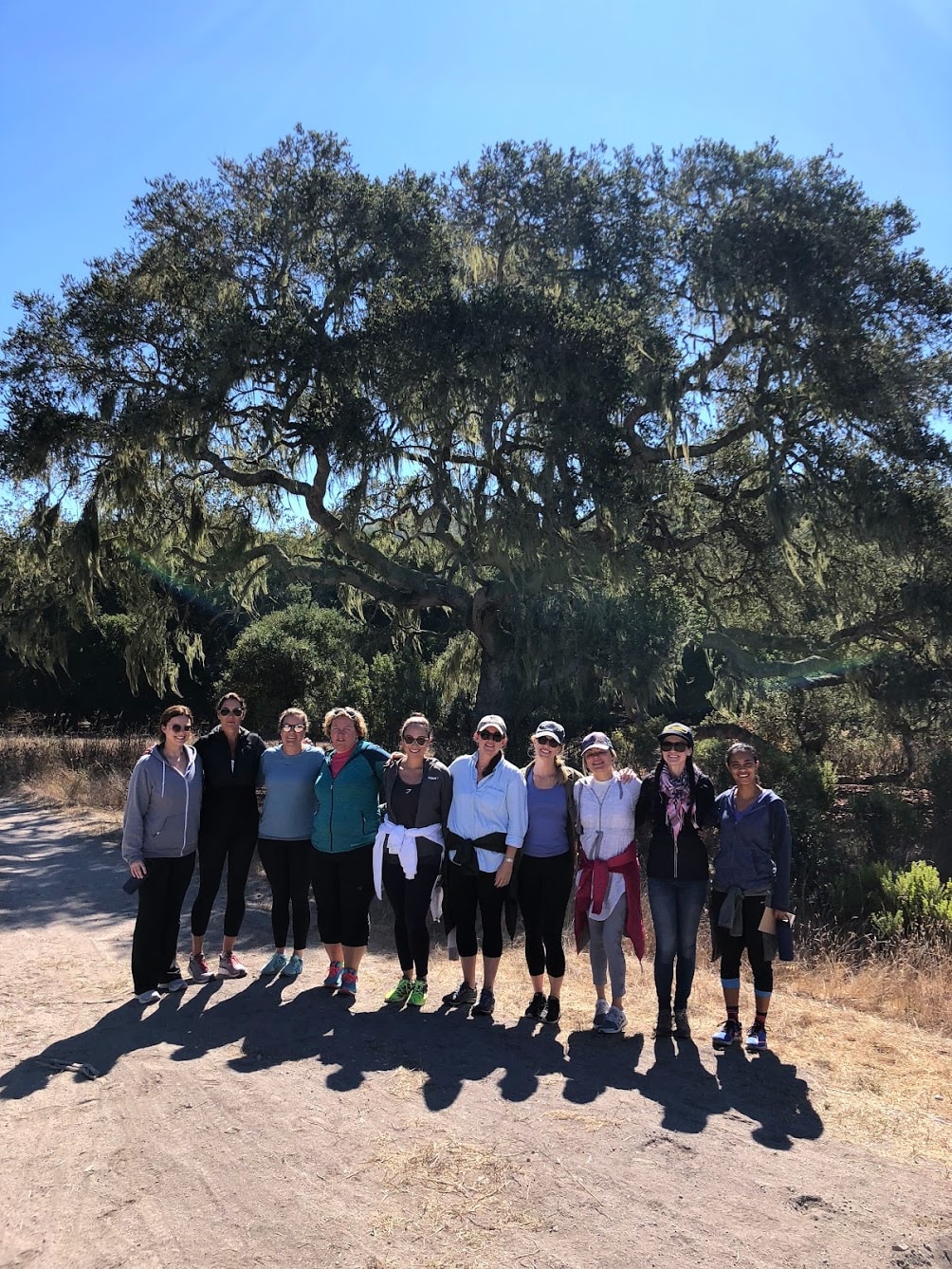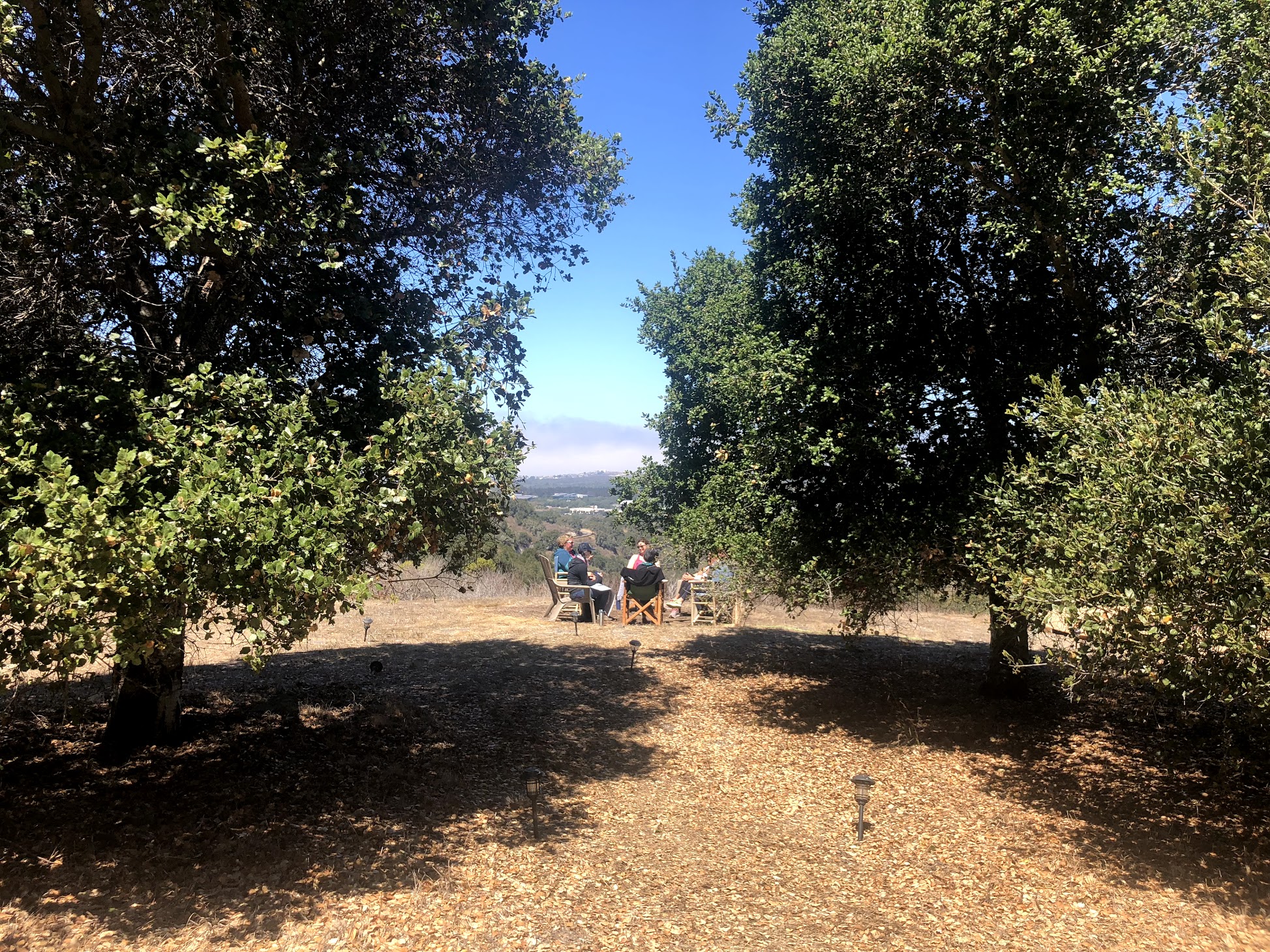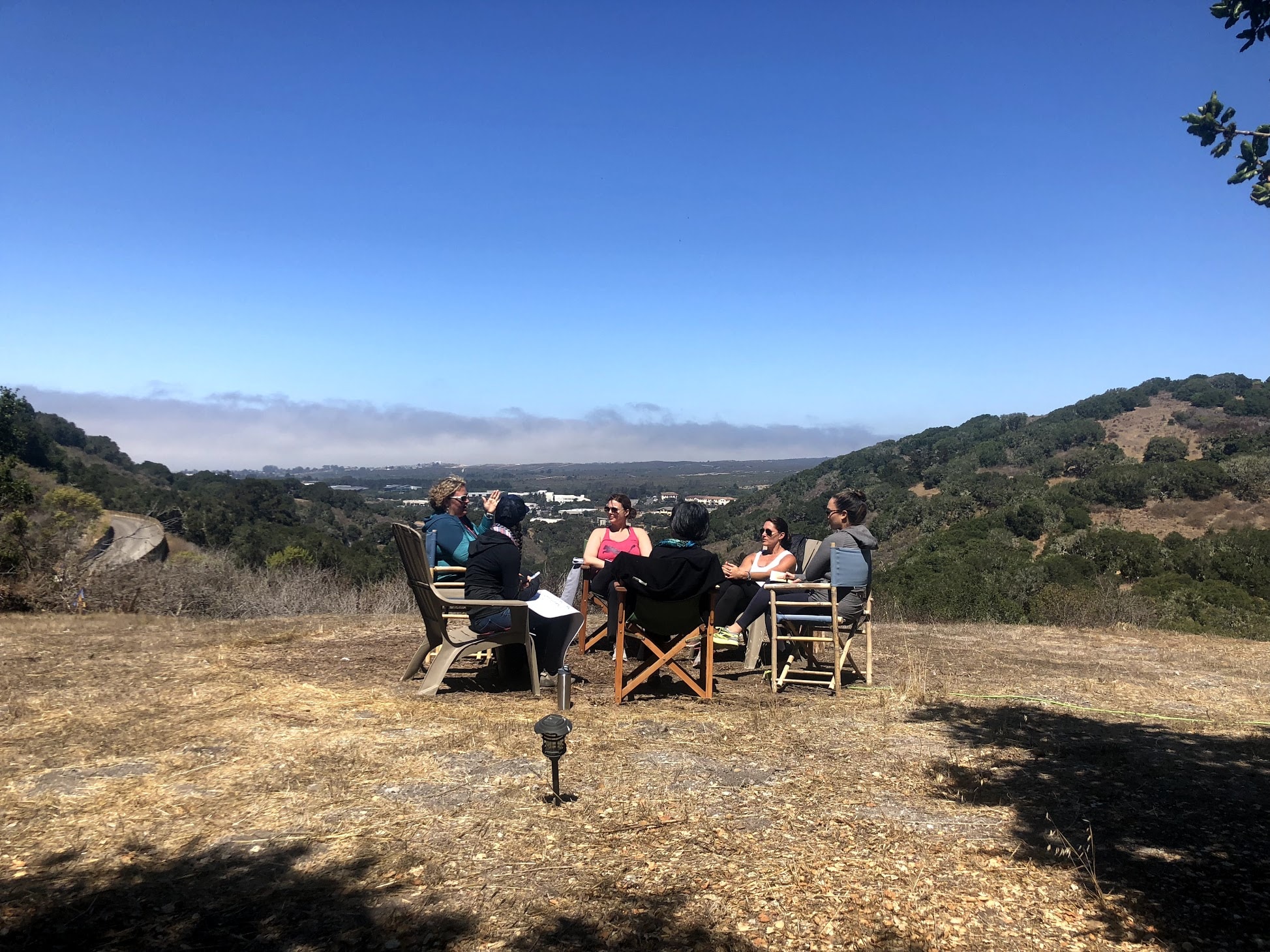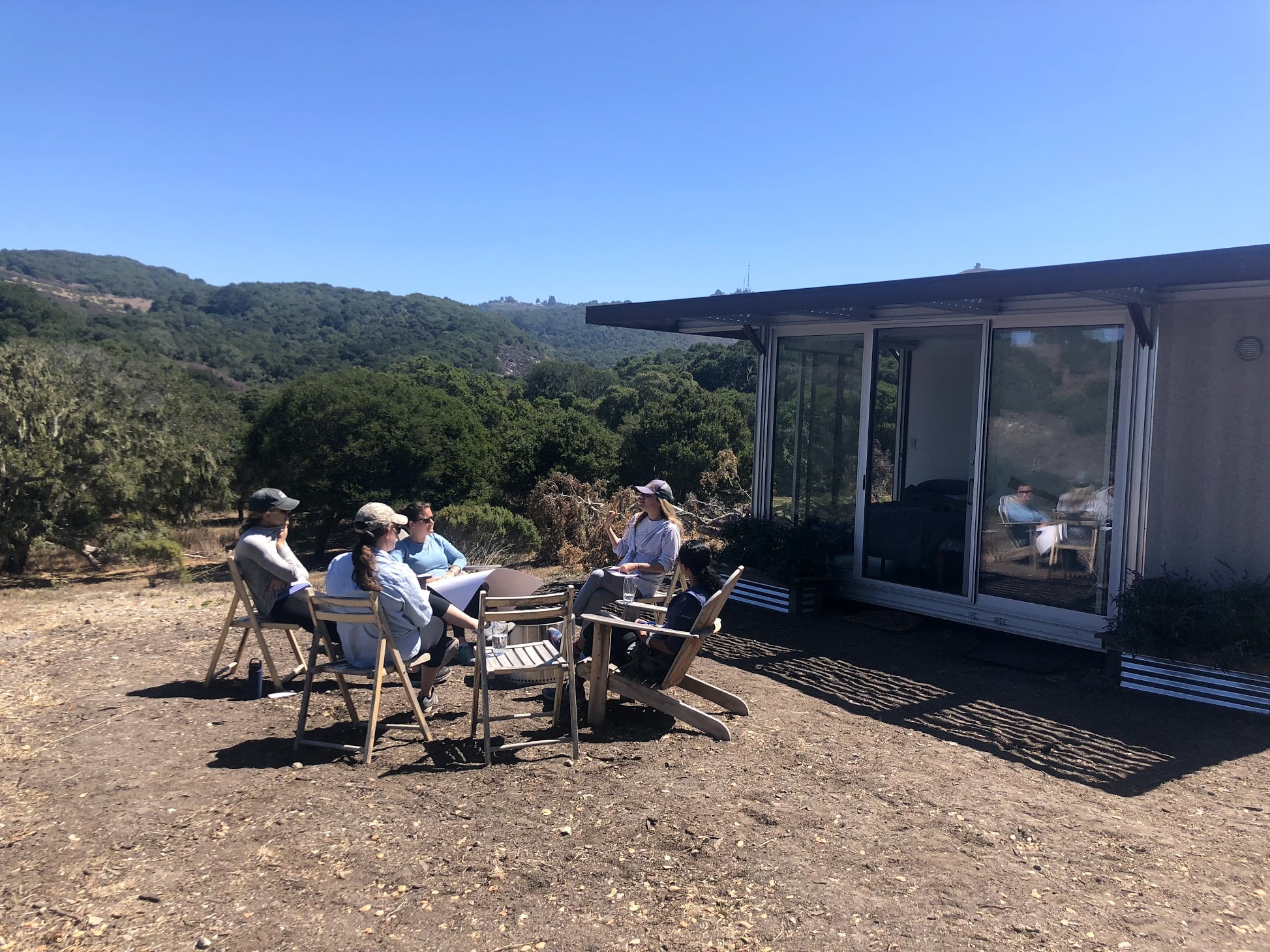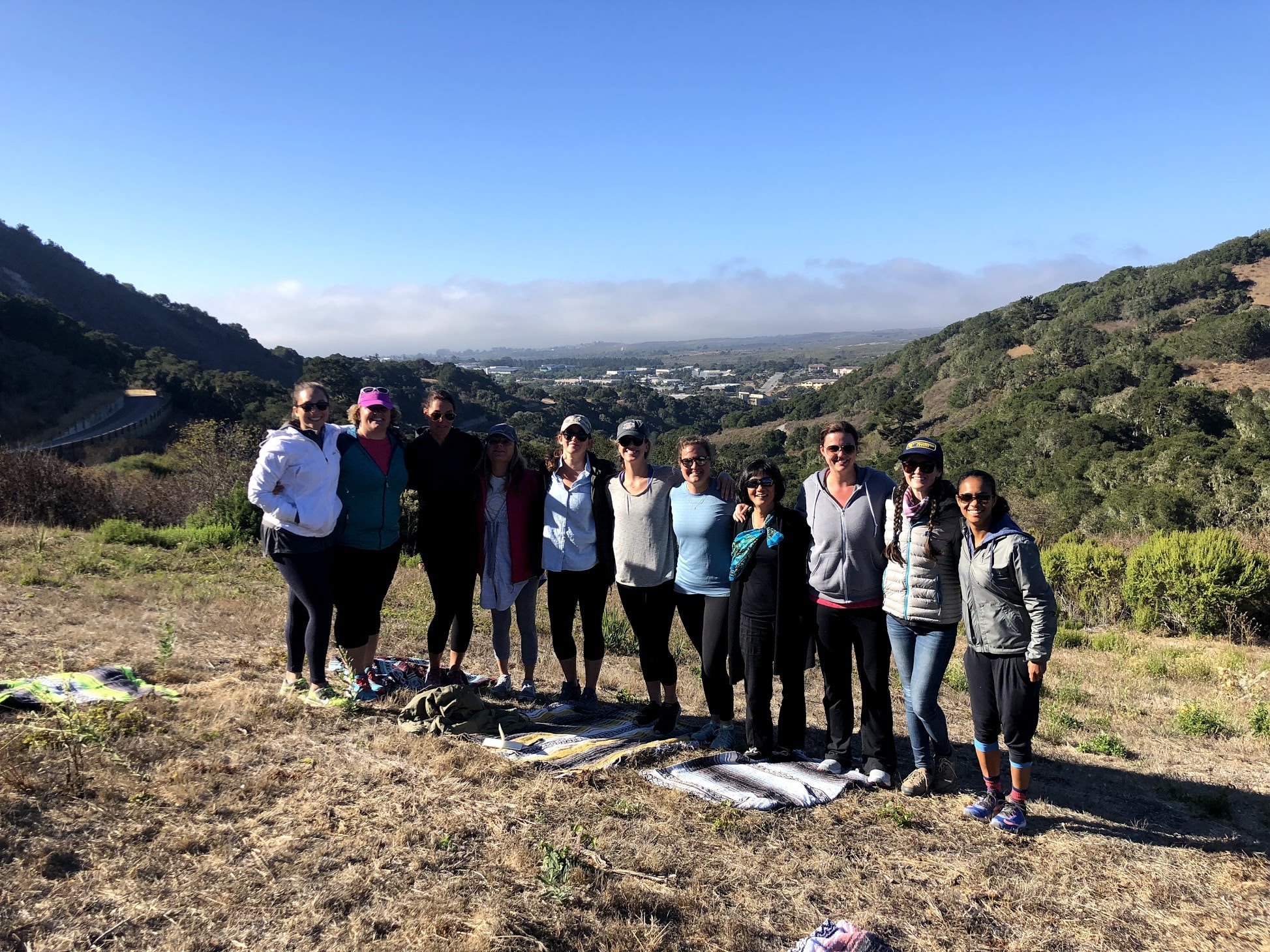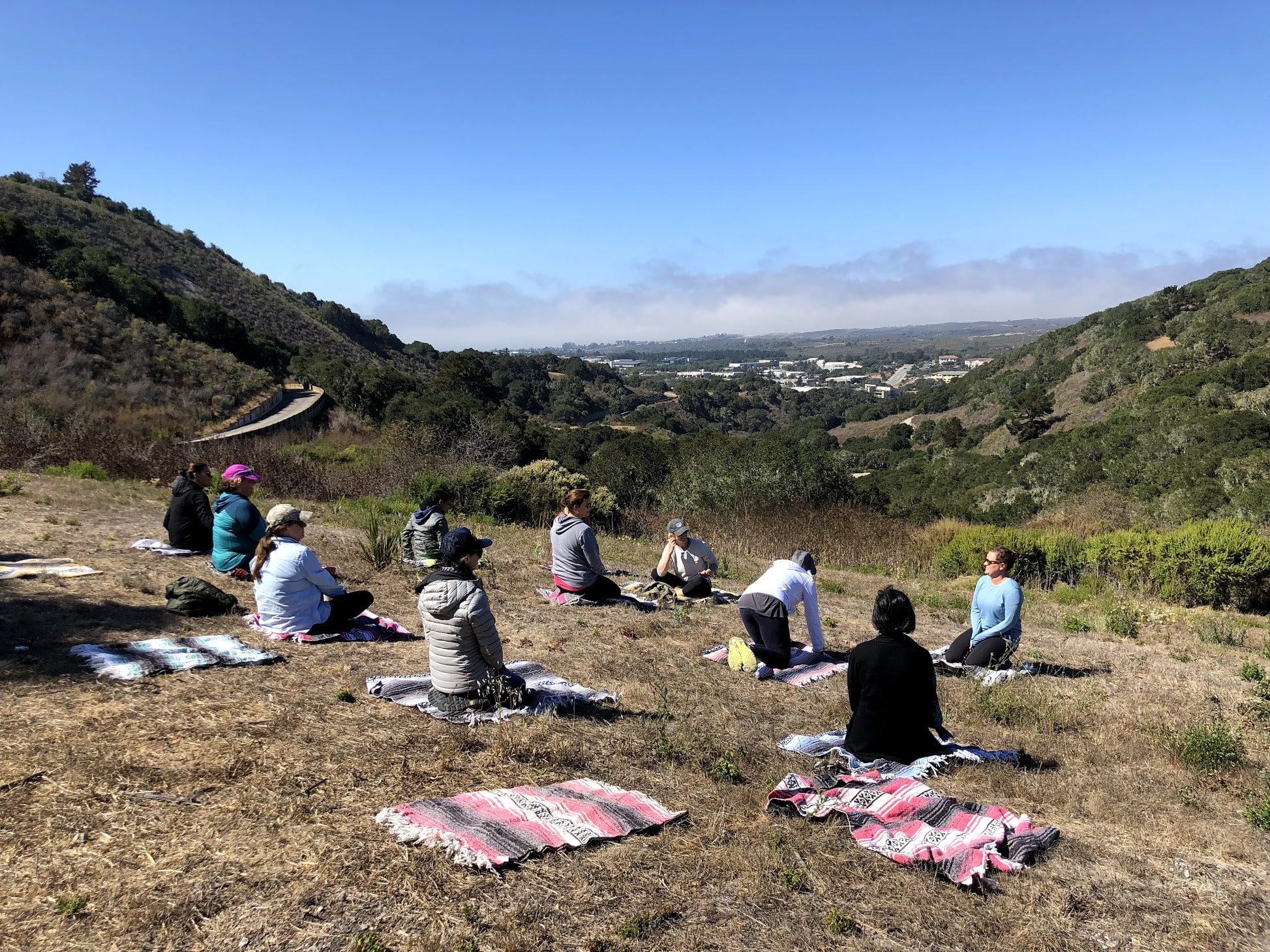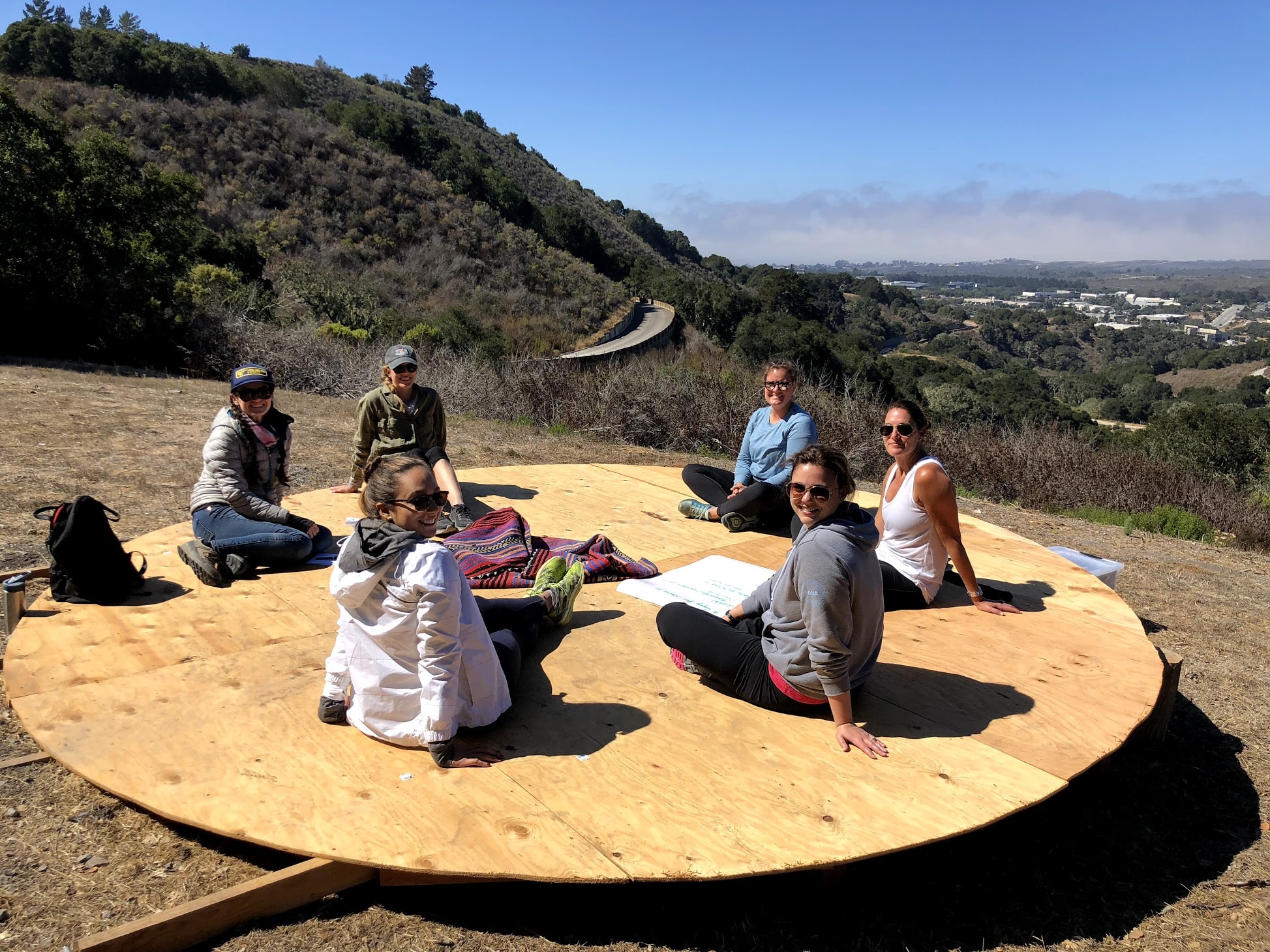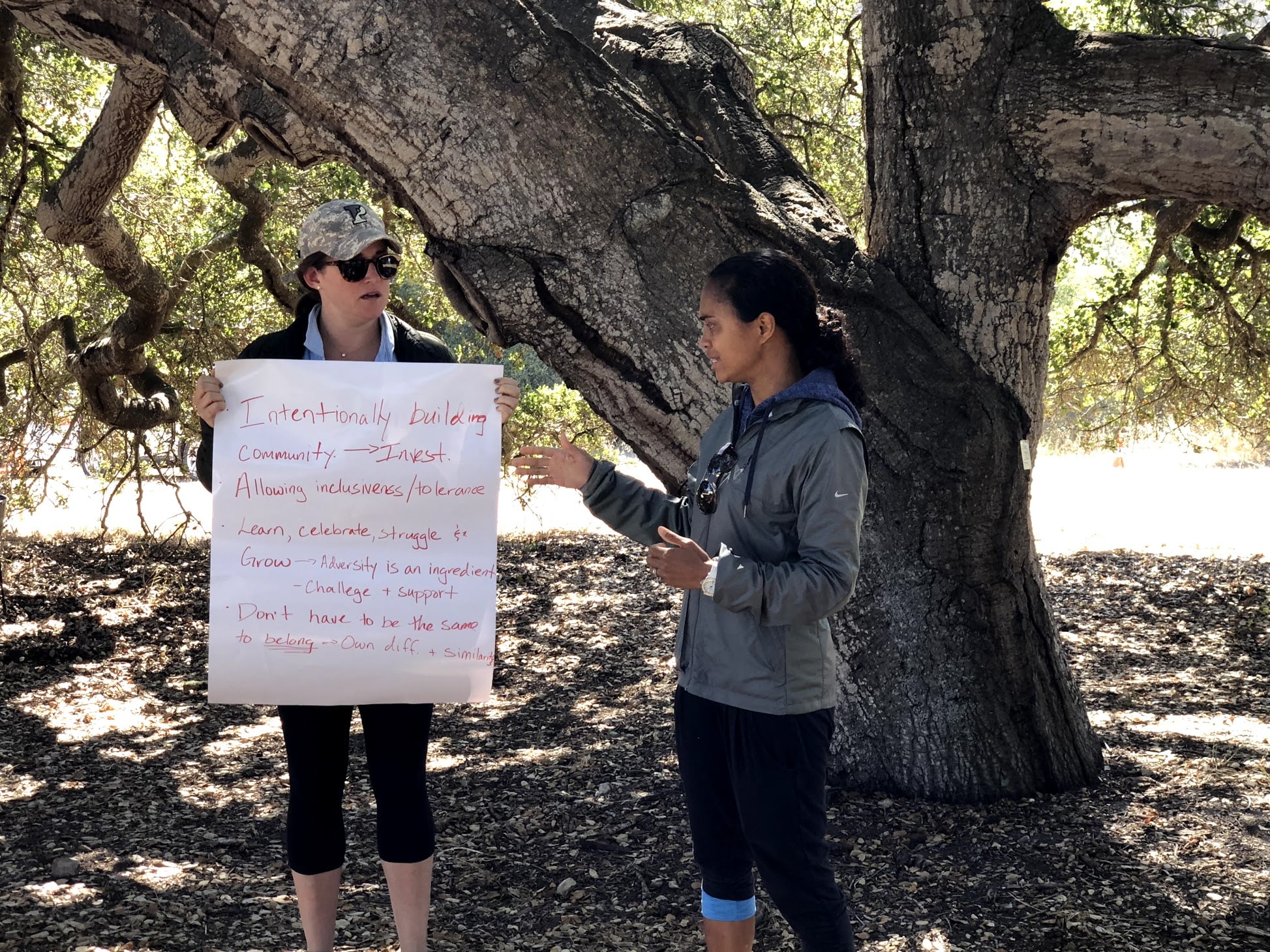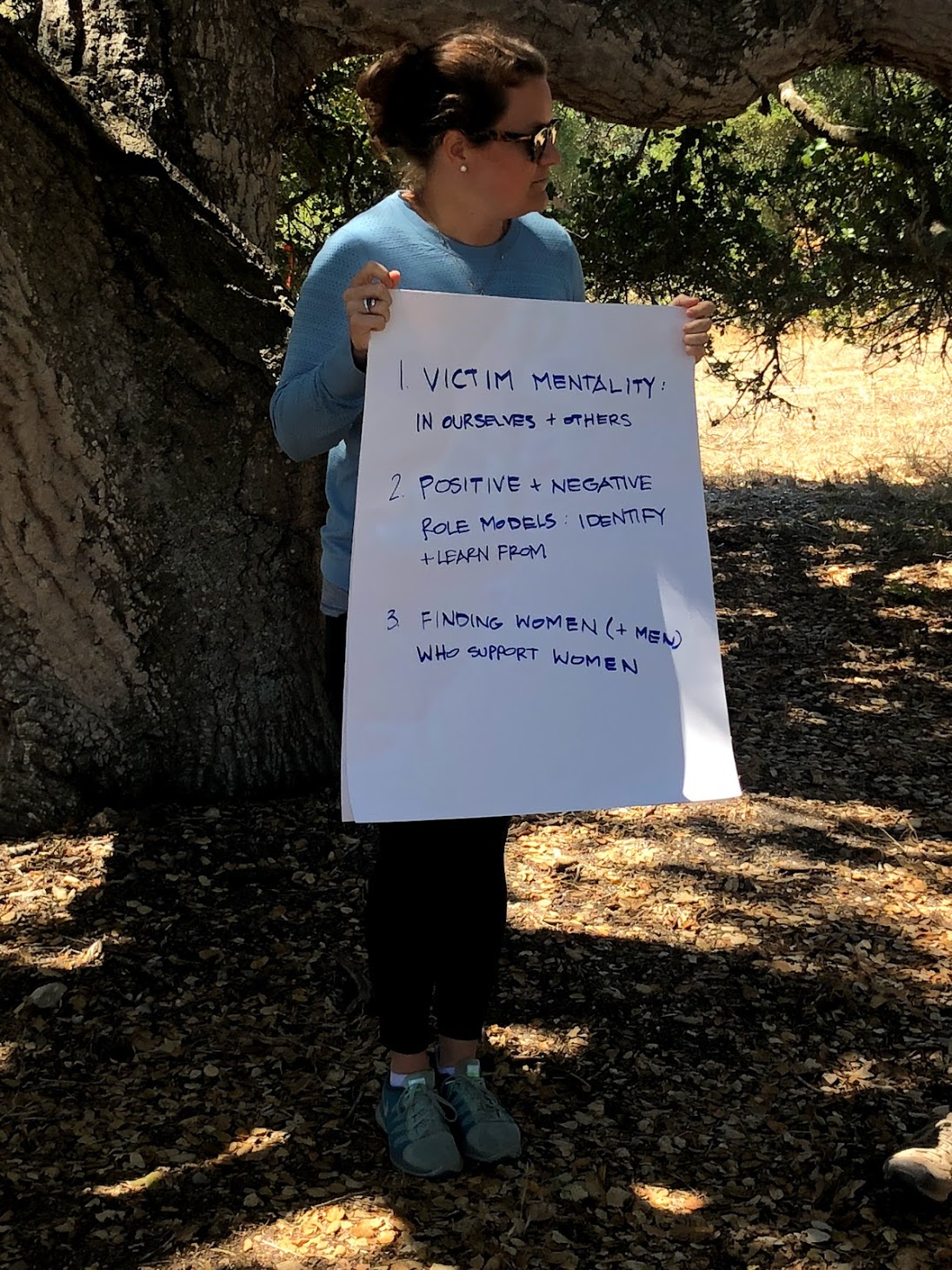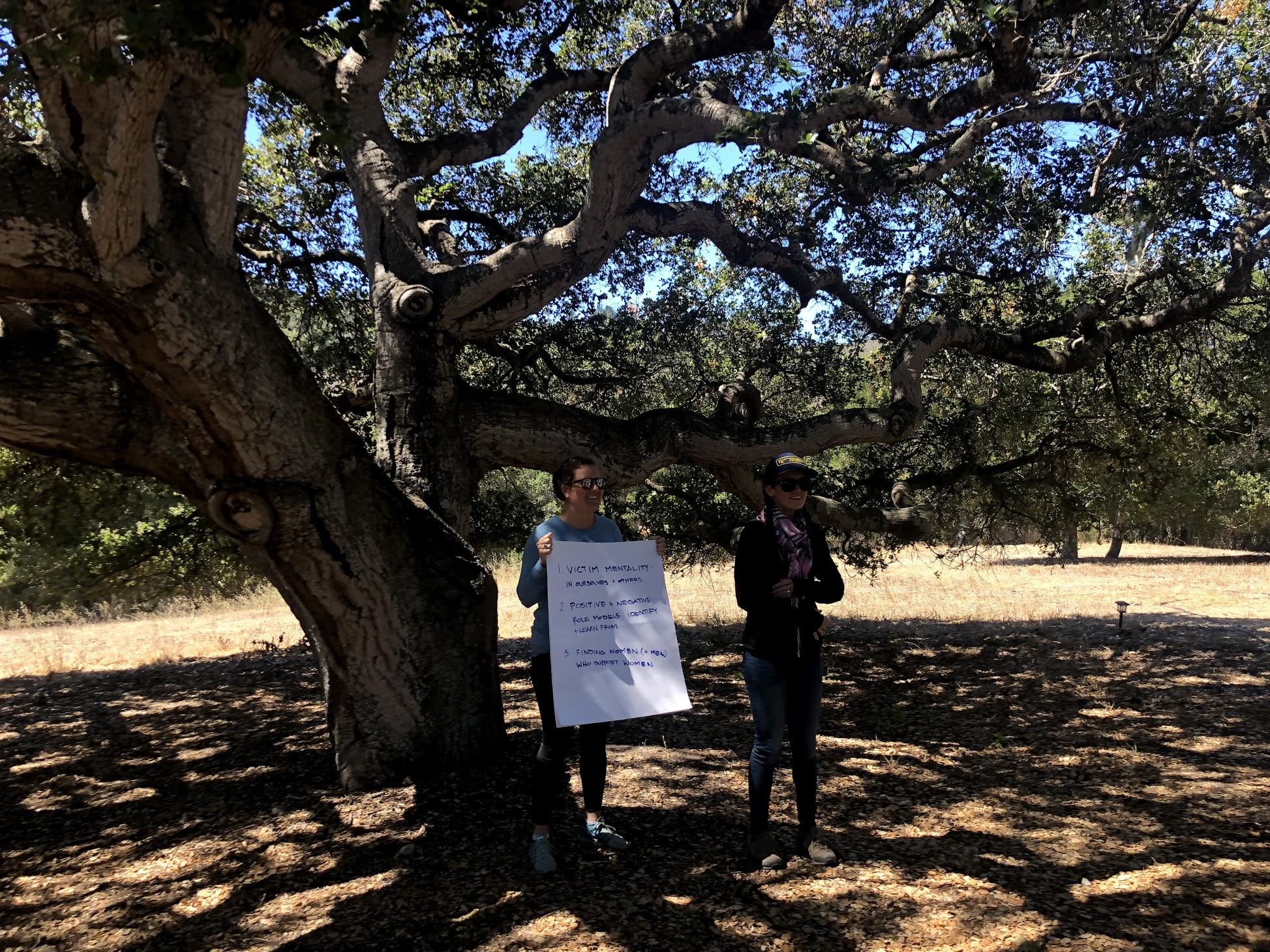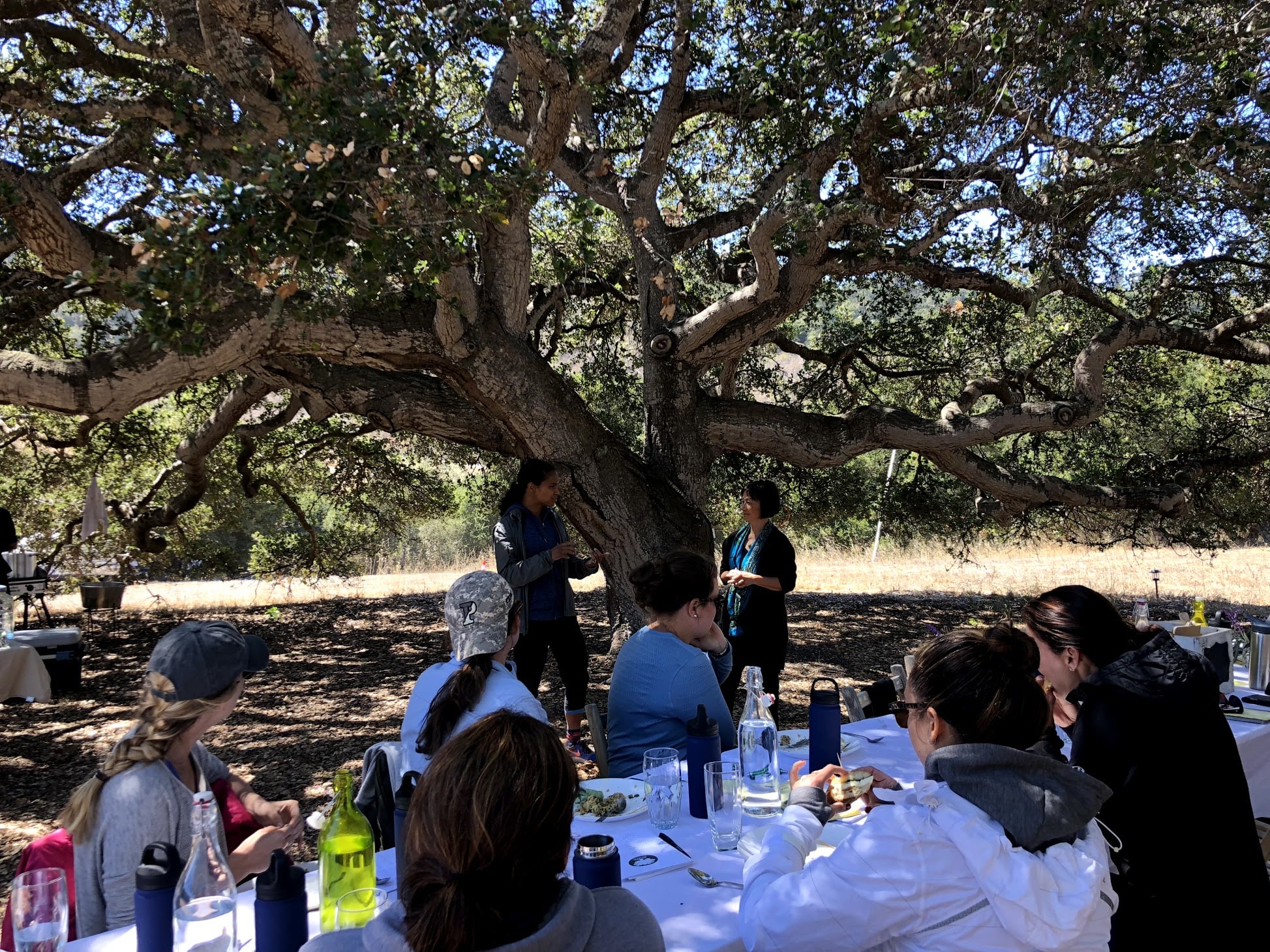Walden Gathering & NextFem: Women in Nature
What we act on today will determine the world we will live in tomorrow
You're putting in the work and headed to the top. But as a woman you face real challenges as you rise through the ranks.
Friends, family and colleagues mean well, but the best support has to come from women like you -- women in the trenches, working through the same issues, in the same industry and work culture. And from experts with strategies proven specifically for women like you.
We gathered to bridge this support gap and accelerate high potential women into the executive ranks.
THE WALDEN GATHERING FOCUSED ON THESE QUESTIONS:
Can women truly "have it all" -- or is this an impossible expectation?
Do empowerment narratives help women, or do they shift responsibility away from the true root causes of workplace inequality?
Letter from Tara Padua
Co-Host & Founder of NextFem
“NextFem, what began as a passion project, when combined with 600 acres of pristine nature and the stewardship of Nick Jekogian evolved into an amazing community of inspiration, support and fun.
For all attendees, thank you for taking time out of your busy lives. You made my day brighter and filled this experience with so much joy.
Women flew in from far and wide. I got to witness discussions under oak trees on the power of team, the importance of reciprocity and how community can heal adversity. We closed our eyes for a quiet meditation in an open field under blue skies. For me the day in Walden brought much needed joy, rest and reflection.
Thanks to this experience, going forward, NextFem is more deeply rooted than ever in its mission to share the stories of extraordinary women leaders.
For those who attended if during your musings on our big adventure, you arrive at something profound, funny or just plain exciting feel free to share it with us. Keep finding those moments of discovery, keep laughing and taking risks. Above all, don't ever forget your worth. You are enough.
Thank you for spending the day in Monterey and this past year with me and NextFem. Thank you for bringing your gifts and for everything you do in all the tiny, quiet moments in between.
Wishing you a magnificent year ahead! And all the best from Tara and NextFem!”
Walking Discussions
We started the day with a rigorous networking hike around the Walden property. A steady uphill climb among the leafy coastal oaks, let us breathe and introduce ourselves in a relaxed style. More than twenty women from diverse backgrounds and careers joined - they included founders of media companies, architects, writers, branding experts and a psychologist whose work is focused on the biology of men's and women’s power.
Thoughts from the trail
Learning to be more present - Breathe
Enjoy the moment
Using travel/nature to reconnect with family.
Be where you want to be - surround yourself with the people you wish to be around
Exploring spirituality
Daring to grow
Time to pivot again
Follow your passion - changing careers to make a difference
One should not run from uncomfortable situations
Challenge yourself and each other
Creating change
Running for office can help make change happen.
Solving Housing problems with in-place resources
Supporting each other
Helping millennials develop long term thinking
Reducing barriers in work place - create more synergy / transparency
Key Themes
Finding Empowerment
““I recently spoke at a university about leading with compassion to a group of about one hundred students, most of whom were female. When my talk was over and it was time for the question and answer session, I noticed that out of the twenty or so hands that went up, only one of them belonged to a female student. Yet after I finished answering the questions and I was leaving the stage, several female students lined up to have a chance to speak with me one on one.””
But Why?
By Shawna Jacoby, Architect | Founder, Anza Studios | Attendee
AWARENESS
We participate in so many dynamics that we are sometimes unaware of. Likely many of the women in the audience noticed that it was the men who were asking nearly all of the questions. But I wonder if participation would have increased if the author had presented the ideas she conveyed in the article -- that I found so powerful: “When women don’t share their ideas with a large number of people, their contributions are easily overlooked, and it’s difficult for them to be seen as leaders.” AND “Your thoughts, ideas, and opinions are valuable, and if they’re not heard, it’s truly a missed opportunity.” Given that research shows that diverse groups come up with more innovative solutions, in some sense we have a fiduciary duty to participate. Really internalizing this idea and feeling a shared sense of responsibility for participation, could perhaps overcome other forces likely at play (see below) to prompt more of us to raise our hands.
DISCOMFORT
‘I didn’t prepare my question in advance.’
‘What if I stumble when I am asking, in front of so many people? If my delivery isn’t confident or smooth, I will be judged as not being a good speaker/ leader. Will that then reinforce others’ negative stereotypes about women and leadership?’
‘Maybe my question feels more personal; the group will not benefit from hearing it. It’s probably better to not show any vulnerability in a group setting.’
‘Some of the men asking questions seem like they want to highlight their own accomplishments or speaking skills, I don’t need to be the center of attention like that. Plus, I’m kind of shy. Speaking in front of the group seems to be taking on unnecessary risk -- I’ll keep quiet, not embarrass myself, and ask my question one on one later on.’
THE PASt
‘Besides, how many times have I raised my hand in the past and never got called on? The guy in front of me always seems to raise his hand faster and higher. Usually, the speaker runs out of time for questions before they get to me.’
FINDING EMPOWERMENT, for me, is a lifelong journey, not a moment in time. Growing up, I never thought of myself as, or aspired to be, a leader. It wasn’t that I thought I had nothing to contribute -- as a feminist/vegan/environmentally conscious/athlete I had very strong and well-formed convictions -- I just didn’t understand the value or responsibility or work involved to share ideas, collaborate towards a common goal, and GROW. Accepting that being empowered is an active process of learning and work, versus simply “becoming” or “being” an empowered person, has been essential for me in moving forward and shedding baggage.
As I advanced professionally, I began to find myself in situations where I was in the spotlight. I could not HIDE. Because I cared about the outcome of what I was doing, and I wanted to save face and be seen as strong and capable, I was FORCED to step up to the plate. I found that with practice, preparation & conviction for what I was working on, I could come out of my shell and become an effective, and even excellent, presenter and leader. Eventually, with a track record of successful projects and happy clients, I became the only person my CEO would deploy instead of herself. This brought more success and opportunities, and many fabulous, if high-pressured, trips all over the world.
But. I know I can slide back any time. And feel like I am starting all over again, with no experience keeping me afloat. Now, as the founder of my own small business, my projects and teams are smaller, and less public. I am no longer flying to Budapest, presenting to clients with billions at stake, or convincing Google to spend four times as much as they ever have, to make their new cafe in San Francisco amazing. I feel like I am getting rusty, out of practice, and not using my full skill set. I now have to rebuild my reputation and create my brand from scratch, and remember to force myself into new and unfamiliar situations. When I am feeling overwhelmed, I go into baby steps mode, to calm and focus myself, and realize that solving problems and facing challenges is a journey, too, and not an instant and permanent transformation. Step by step, even if the resulting movement is sideways or backwards, this can lead me to unexpected and better places, as long as I keep putting one foot in front of the other.
Written by Shawna Jacoby
Why Empowerment Narratives are Selling Women Short
There are no shortage of workplace empowerment narratives from which modern women can choose. One trip to Barnes and Noble and you'll find nearly 1,200 books urging women to speak up, lean in and take charge -- all in the near-mythical pursuit of "having it all."
Women are told that we need to be more aggressive in salary negotiations, project an air of confidence and harbor grander ambitions.
Yet what if all of that advice -- well intentioned as it is -- ultimately helps keep women from achieving workplace parity?
Telling women to become more assertive by adopting conventionally male office behavior may sound like an easy way to level the playing field. Too often, however, it obscures the deeper systemic issues that prevent us from achieving equality in the workplace. Workplace empowerment narratives offer women an exhaustive set of prescriptions, dictating changes to their dress, manner of speaking, posture and behavior.
The underlying implication, of course, is that women are somehow deficient in these areas. Instead of tearing down obstacles created by systemic sexism, the onus is placed on us to modulate our voice and alter our behavior and appearance. And even when we take this advice, gender bias often makes it work to our detriment. Even doing something as straightforward as speaking up more assertively can backfire, when women are perceived to be pushy or domineering for mirroring behavior that would go unremarked upon in men.
On a personal level, women may achieve a greater level of success by replicating the strategies that lead to success in male-dominated office culture. Yet achieving true equality requires something much more difficult: solving the longstanding historical problems that have prevented women as a whole from receiving fair and equitable treatment at work.
Another problem with empowerment narratives: They skew women's perceptions. After speaking up, standing out and leaning in, women may feel that they are solely to blame when confronted with setbacks. The truth, however, is that individual behavior has limited utility when dealing with the kind of entrenched societal obstacles that today's women face.
Empowerment narratives give the impression that it is within a woman's power to transcend barriers created by office sexism via the mechanism of relentless self-improvement. When this falls short, women may place blame internally, rather than on the system itself. And that's a scenario that dis-empowers, and allows the true root causes of inequality to escape examination.
Redefining Success in the Era of “Having it All”
In one generation, the phrase "having it all" has gone from an aspirational woman's magazine slogan to a cynical lament. The premise, of course, is absurd -- women are encouraged to "have it all," yet we are punished in the attempt to do so. If a woman places her career on pause to have a child, she'll often be dismissed as not being equally as "career-focused" as a man. When she returns to work, she'll often struggle to regain momentum in terms of career advancement and compensation.
The sexist dynamics that have long ruled office culture and child-rearing responsibilities also pit women against each other. Working mothers may feel insecure when placed in a competitive context with the stay-at-home, PTA mom, who devoted much more of her time to the work of child raising. Conversely, stay at home mothers may feel insecure about their career progression when placed in that same competitive context with working mothers.
"Having it all" seems like one way to square this circle. After all, who doesn't want the best of both worlds? Yet in practice, this is often an impossibility. Our work follows us home and modern parenting has become just as competitive as the most high-stakes office environment. All of these pressures are also magnified by the competitive glare of social media, where we are exposed to expertly curated (and often misleading) depictions of career success and family bliss.
The demands of child-raising are ever-growing; one study found that today's working mothers spend six more hours each week on child care than stay-at-home moms did in the 1970s. Meanwhile, though the stay-at-home father has become an emerging trend, studies show that stay-at-home dads actually perform less child care than their working spouses.
Given all of this, it's fair to say that women seeking to "have it all" are being set up to fail, in many respects. In order to escape the cycle, it's essential to measure ourselves against our own ambitions and recalibrate our definition of success
The idea that women are fundamentally less ambitious than men has a long history of being deployed to rationalize gender disparities in leadership roles. Yet the notion that we have fewer female CEOs because women lack ambition is absurd -- as long as structural bias and sexism are present, the glass ceiling will remain firmly fixed in place.
Could there be another reason why women are underrepresented in the C suite, however? According to anecdotal reports, some women may be simply redefining what success means. After all, ambition isn't strictly limited to the workplace; women can channel their desire to be great into any aspect of their lives -- and there is no single way to define success.
For some women, that success might start by recognizing that the idea of "having it all" is a trap -- and the best way to empower women isn't by asking them to change, but instead working to effect the kind of broader societal changes that will create more equitable workplaces.
“Practice true intentions in your communities”
Gathering Actions & Solutions
Gathering Discussions
Following the morning hike a farm to table breakfast was served, providing Nick Jekogian with the opportunity to introduce the philosophies behind Walden Gathering.
“We use a design-thinking format around the table, walking discussions on nature trails, and guided meditation to inspire the group to solve big problems. Instead of the hyper-intense networking of your typical conference, participants spend the entire day outside with a carefully curated small and diverse group of people.”
After the Gathering intro, members presented current issues, focused on:
Systematic Problems in Today’s Workforce
Using Nature as a Catalyst to Change
Creating community to Overcome Adversity
During these discussions, participants break up into groups to increase contributions and engagement. Topics are addressed, opinions are shared and summaries are presented to all.
Systematic Problems
Intentionally build
Invest in Community
Allow inclusiveness & support tolerance
Learn, celebrate, struggle & grow
Adversity is an ingredient
Challenge & support
Don’t have to be the same to belong
Own differences & similarities
Saying “yes” - showing up
Intent - Know what you want - Create Structure
Being able to move on - “grow your garden”
Create COmmunity
Need community to help find your blind spots.
New place new community
Planned togetherness
My last company was great at internal community (Google)
Finding friends after school is work.
Think younger and older for your network
Use nature as a CATALYST
Appreciate life and all it has to offer easy in nature (sky/trees/stars/darkness)
Enhance nature to bring out the best
Changes brings out beauty
Watch how these trees endure
We live in interesting times
Living in nature inspires change in us
Actionable Solution
WALDEN GATHERINGS ARE NOT JUST FOCUSED ON TALKING ABOUT SOLUTIONS, BUT PUTTING SOLUTIONS INTO ACTION.
While ideas are shared throughout the day, we Gather to create change. In order to improve the world around us, we must not only speak about the issues at hand, but work towards solutions. The point of the discussions is to establish the framework for identifying and understanding the problems. What follows, is most important.
How can we improve the current state of inequality?
What can we do today?
Start a Network to Mentor & Help Others
The group at the end of the day was passionate about setting up a virtual network to continue the discussion, provide mentorship, and support. A true solution in action from the Gathering.
Team
We aim to bring together passionate individuals, groups and organizations to gather, learn and collaborate in small groups on how best to contribute and invest their time, talent and resources to innovative solutions -- and then take them back into the world. We see everyone who joins as an equal expert at the table because we believe in the wisdom of the crowd to find solutions.
tara padua - meg bender - rachel manson - sarah waxman- lisel welden - jayme frieder - lorena ramirez - liz arnold - zarina stanford - katie montbriand - lauralynn drury - shawna jacobs
Follow up & Recommended Reading
What Most People Get Wrong About Men and Women - Harvard Business Review - May 2018
The Biggest Barrier is Human Nature - Rayon Sharpnack - March 2018
How to Propel the Future of Women’s Leadership - Forbes, March 2018
Join the Walden Gathering List
To stay informed on the Women's Gathering & Upcoming Discussions
























